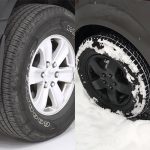If your Honda Accord doesn’t start after a battery change, it may be because the battery terminals are not connected properly. It’s also possible that the starter is not working properly.
A Honda Accord’s starter has a solenoid that sends power to it, and if the solenoid isn’t working, it can’t send power to the starter and turn over the engine. So it would be best if you had a professional diagnose your car and ensure everything is connected correctly.
Or the new battery could be faulty. It’s worth checking the terminals and cables for corrosion, loose connections, and dirty or corroded terminals. If the new battery is not faulty, then you should check the alternator belt to make sure it is tight enough.
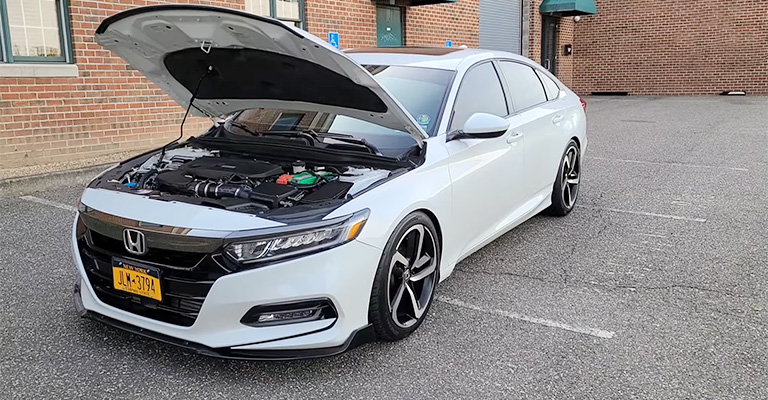
What Should I Do When My Honda Accord doesn’t Start After Battery Got Replaced?
If you haven’t verified that the battery is good and fully charged and can hold a load, I won’t presume it’s good.
The battery may fail for several reasons, including the charging system, parasitic draw, cabling, corrosion, and so on. A hands-on examination is needed to make a definitive assessment.
A dead battery, an alternator problem, or a failed starter are the most common reasons for a Honda Accord not starting.
1. Double Check Your Battery Cables
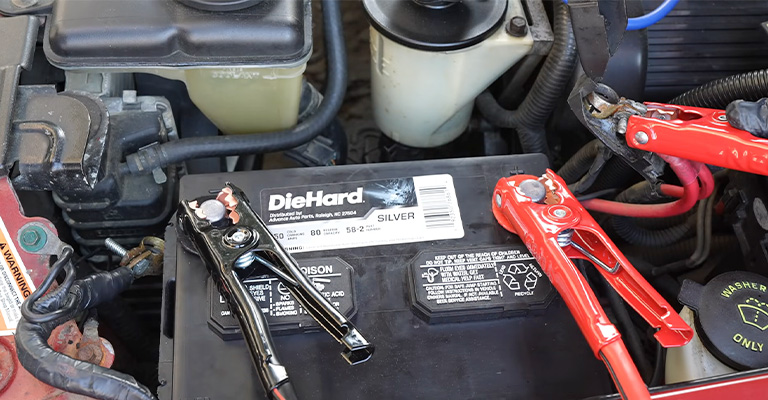
After changing the battery on your Honda Accord, there are a few common reasons why it won’t start. It would be best if you began by checking the connections between the battery cables and the terminals.
The vehicle will not operate if the bolts are loose or installed backward. Sit them down and tighten their seatbelts.
In the case of corroding contacts on your car battery, your engine can no longer start due to a loss of contact and a reduction in current flow.
2. Starter Motor
The starter motor may malfunction if your battery cables are in good condition. This clearly indicates that the starter is not working if you hear it clicking or grinding.
You use a starter motor to start your Accord’s engine. A starter motor has an average life of 100,000 to 150,000 miles; if it is started frequently, its life will be shortened.
Nevertheless, the starter motor also has a limited life, so if it breaks down after a long time of use, the engine won’t start.
3. Lack Of Fuel Pressure
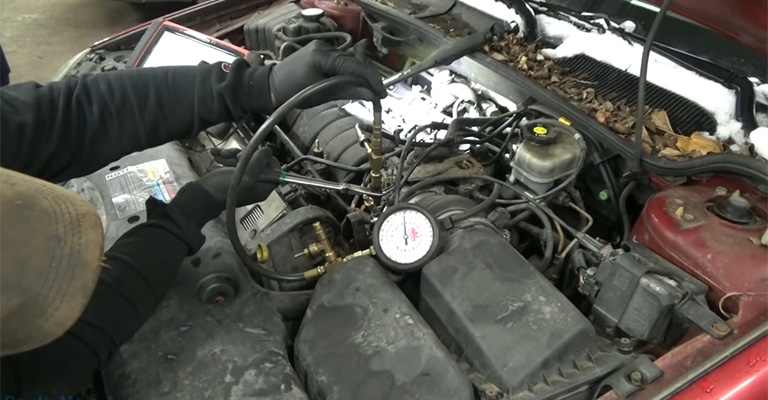
An engine with low fuel pressure is another common problem. It is important to listen to the fuel pump to prime the system when you turn on your car. A pump problem could be the cause of nothing being heard.
4. Rodent Damage
The Honda Accord may not start due to rodent damage. This is because the animals chew through cables and wires under the vehicle. Any vehicle system, including fuel, oil, and power, can be affected by this.
When looking into the engine compartment, rodent damage can usually be seen immediately. It is possible to repair rodent bite damage in the workshop. This will be a relatively expensive endeavor.
5. Defective Alternator
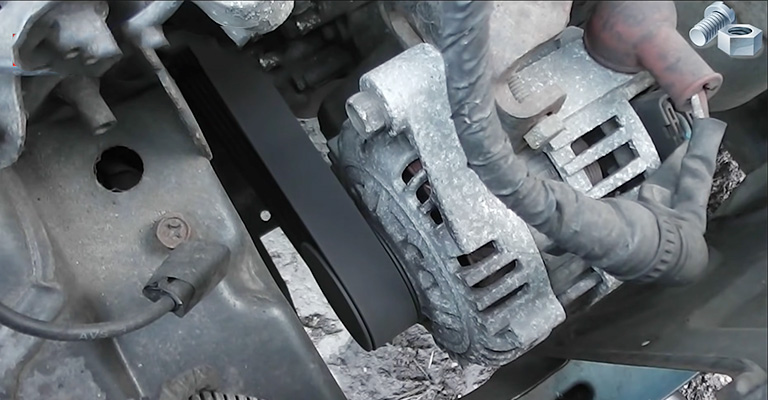
Generators produce electricity through alternators. Unfortunately, the alternator of your Accord cannot produce electricity, and the battery cannot be charged if it fails.
Consequently, even if you replace the battery and believe that the engine will not start because of a battery failure, the battery will soon run out, and you will not be able to start the engine.
The alternator rarely fails. As a result, modern cars are said to last 200,000 to 300,000 miles due to their improved performance. On the other hand, a used car’s alternator may be quite old, and depending on how you use it, it may break down.
Keep your guard up at all times. It is necessary to replace the alternator if it breaks down.
6. Defective Spark Plugs
A malfunctioning spark plug prevents the engine from starting. Often, a defect does not affect the spark plug itself. Instead, there is a loose connection between the plugs on the ignition system.
Depending on the situation, you may be able to fix the problem yourself on-site if only one plug is loose. However, if it fails, it is necessary to replace a spark plug in a workshop.
7. Blown Fuse
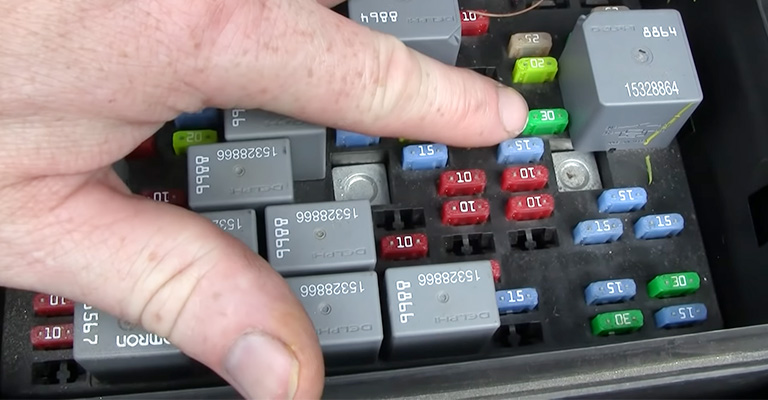
In rare cases, your Accord’s breakdown can also be caused by a blown a fuse. The fuse box must have all the essential fuses to start the engine.
If you decide to help yourself with the fuse box, be careful! It is always advisable to have repairs or tests performed in a workshop when the box is under power.
8. Malfunctioning Alternator
When the battery was installed, but the car did not last long after starting, the alternator may have been the problem. You could have gotten down the road with a fully charged battery, but it wouldn’t last if you didn’t have an alternator to recharge it.
Battery replacement is a common mistake when the issue is really with the alternator. Therefore, before determining the cause of the dead battery, it’s important to diagnose it properly.
9. Incorrectly Installed Battery
The installation of a brand-new battery under the hood should be checked if it still does not power the vehicle. Is the cable in good condition, and have you clamped it down tight? It won’t be possible to start the car if the battery isn’t charged.
In addition, the positive cable, right down to where it meets the starter, needs to be in good condition. A compatible battery is also necessary for your vehicle. Unfortunately, there is no universal battery for automobiles. Your vehicle’s engine must have a specific size and capacity to be started.
You won’t get enough juice from a four-cylinder motor’s starting current for a heavy-duty pickup truck. It is a good idea to check the owner’s manual if you are unsure which battery you need.
How to Fix a Car Won’t Start After Replacing Battery?
It’s possible that you automatically assumed a dead battery was the cause of your car not starting. After replacing the battery, how do you start the car? Finding out what is causing the problem is the first step. Once that’s done, you’ll have to fix it.
1. Test The Starter
The starter likely is to blame if all interior lights and accessories work, but the vehicle doesn’t start. The motor and solenoid are just two of the parts that can fail in a starter. The starter is often tested for free at auto parts stores.
If you’re not sure how to do this yourself, just remove it and take it to your local participating location. Replacing a starter could range from $150 to $700. If a starter needs to be replaced, the cost could be $100 to $400, depending on where it is located.
2. Inspect The Alternator
A lot of people are willing to give you advice online about alternators. In addition, many publications recommend unplugging the positive connection while driving.
A malfunctioning alternator won’t stop the car from running. The problem with this method of checking the alternator is that it could actually damage the car’s electronic components.
When the car is running, use a voltmeter to test the alternator. An engine-running battery should have a higher voltage if it’s fully charged under the hood. There’s a reason for that: the alternator is charging it.
A failing alternator won’t jump or lower voltage if it doesn’t drop. Your local auto parts store can check the alternator for free if you are unable to start the car.
There is a possibility that alternator replacement will cost between $450 and $700. Parts usually cost between $400 and $550, while labor might cost between $50 and $150. An alternator can be easily replaced at home in most cases.
Final Words
In case the above steps don’t solve your problem, a professional should be consulted. A larger problem with your vehicle could need to be diagnosed properly.
In the case of a seized engine, you will have to pay a hefty repair bill. The cost of engine repair or replacement can reach $2,000 or more. In addition, recalibration costs around $100-300 for control modules or immobilizers that have lost their settings.

